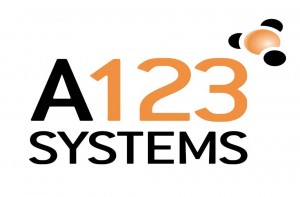A123 Systems Inc., the Waltham, Massachusetts firm that had promised to revolutionize the car business with its batter technology, has filed for bankruptcy protection and announced it was selling all of its automotive assets to Johnson Controls Inc. for approximately $125 million.
That move came as the fast-faltering A123 elected to nix an alternative deal with a Shanghai-based battery company, Shanghai Advanced Traction Battery Co., which was supposed to ease A123’s cash flow crisis – but which also created a political stir considering the U.S. firm’s outstanding government loans.
The sale to JCI, one of the auto industry’s largest suppliers, should permit the now bankrupt battery maker to maintain deliveries to an assortment of automakers that includes the California start-up Fisker Automotive.
JCI will acquire A123’s automotive business assets, including all of its technology, products and customer contracts, its facilities in the Detroit suburbs of Livonia and Romulus, its cathode powder manufacturing facilities in China, and A123’s equity interest in Shanghai Advanced Traction Battery Systems Co., Alpha’s joint venture with Shanghai Automotive.
The asset purchase agreement also includes provisions through which Johnson Controls intends to license back to A123 certain technology for its grid, commercial and government businesses. A123 also continues to engage in active discussions regarding strategic alternatives for its grid, commercial, government and other operations, and has received several indications of interest for these businesses.
“We believe the deal makes very good strategic sense for Johnson Controls,” a firm that has been hoping to expand its own business as the auto industry turns to electrified drivetrain technology, wrote Rod Lache, senior automotive analyst with Deutsche Bank.
Lache noted A123’s automotive business had been expected to generate revenues approaching $350 million by 2014 – and could now do even better as the purchase by well-run JCI “should likely allay customers’ concerns” about whether A123 would be able to survive an ongoing shake-out in the battery market.
The firm had been struggling under a variety of pressures, not the least including slower than expected sales in the electric vehicle market. A123 was also hurt when manufacturing problems forced it to recall batteries sold to at least five vehicle manufacturers, including Fisker, earlier this year.
The battery maker had signaled it likely would have to go into bankruptcy and would not be able to meet outstanding debt. That includes money loaned to it under a Department of Energy program intended to encourage the development of more energy-efficient automobiles. Because of those federal loans, the possibility that A123 could be taken over by a Chinese competitor had created a political wrinkle that appears to have encouraged the sale to JCI.
A123 said all of its U.S. subsidiaries have filed voluntary petitions for reorganization under Chapter 11 of the U.S. Bankruptcy Code in the U.S. Bankruptcy Court for the District of Delaware to facilitate the transaction.
A123’s non-U.S. subsidiaries were not included in the filing. This action is expected to allow A123 to provide for an orderly sale of its automotive business assets and all other assets and business units under Section 363 of the Bankruptcy Code and help maximize the value of its assets for its stakeholders.
In conjunction with the proposed asset purchase agreement, A123 has received a commitment from Johnson Controls for $72.5 million in debtor in possession financing to support A123’s continued operations during the pendency of the sale process.
Nonetheless, the bankruptcy of A123, which received nearly $500 millions of dollars in assistance from the U.S. government to start up manufacturing operations in Michigan, is another blow to the struggling electric vehicle business, which has been struggling to build consumer demand despite rising fuel prices.
The slow development of longer range batteries and high cost of electric vehicles has been cited as the key reasons for the slow development of the EV business.
Paul A. Eisenstein contributed to this report.

